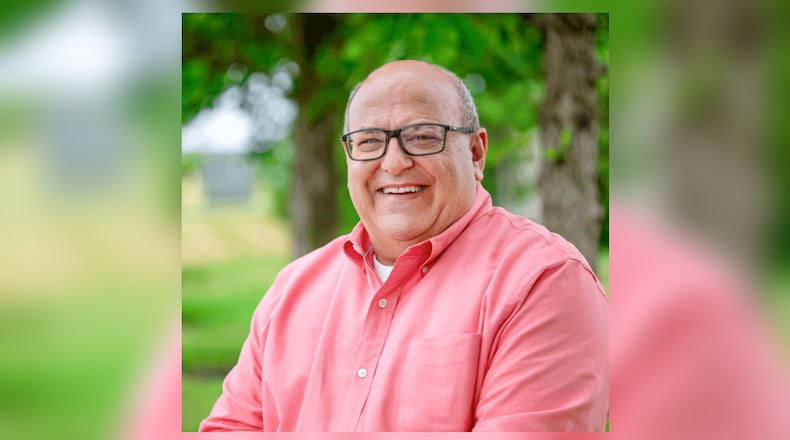“Private philanthropy matters, every gift matters, and everybody can give time, talent, treasure and it’s never been more important,” Parks said. “It’s never been as important as it is now. As public money continues to shrink, we need individuals and private philanthropy more than ever.”
Parks, a Dayton resident of more than 30 years, described the effect philanthropy has had on the city as nothing short of transformative. It has been the catalyst for Dayton’s repeated comeback from tragedy.
“We have a proven track record over decades of being very generous — and more generous than most cities our size,” Parks said. “We care deeply about our neighbors, ensuring that when neighbors have a need we step up and step forward.”
The Dayton Foundation chief cited multiple events in the Gem City’s history as proof of its spirit of generosity. From the 1913 floods that devastated the city through the 2019 tornadoes, Daytonians have frequently responded to challenges by supporting their own.
“We have an unbelievably strong tradition of philanthropy in our community. I often say its baked in our DNA. We may not have the largest companies that some cities have but we have an unbelievable strength in individuals and families that care deeply about what this community means to their kids and those that come after them,” Parks said.
While philanthropy is commonly viewed as being exclusively for the wealthy Parks explained that is far from the truth. Philanthropists come from every background and socio-economic level. In fact, the idea of entire communities contributing to their own welfare helped inspire the Dayton Foundation’s establishment in 1921.
“Everybody can be a philanthropist. We tend to think that philanthropy is only for the uber rich. Thankfully many people with resources are very involved with giving. But it is by no means limited and exclusive to them. Any one of us can give some combination of time, talent and treasure. Wherever your at in life, whatever your interests are, you can find and there is a place for you to do one or more [of those things],” Parks recommended.
Dayton’s burgeoning art scene was a perfect example of that, according to Parks. In addition to the foundation, Culture Works, the Dayton Performing Arts Alliance (DPAA), and many others have played key roles in making the visions of philanthropists a reality.
“We have an unbelievably rich arts ecosystem. For a community our size people are amazed at the diversity, offerings, art forms, and engagement levels,” Parks said. “Some people might say how can a city the size of Dayton have the Schuster Center, the Muse Machine and an entity like DPAA? Nobody does that. But we do in Dayton and that only happens because of philanthropy,” he said.
“Yes, you need public support but ultimately that happens because of the deep, historic and caring tradition of Dayton.”
The award Parks was given by United Way was named for two people that truly exemplified those values. Fred Smith and John Moore were among the city’s most important philanthropic figures, supporting numerous initiatives across many decades that continue to benefit residents today.
“I knew and worked with both of them and it was a gift. They were very different in their approaches and what they wanted to work on in the community, but they each had lessons that many in Dayton came to understand and love about them,” Parks said.
Smith, who took charge of the Dayton Foundation’s voluntary board in 1979, was instrumental in the organization’s evolution. He also chaired Sinclair Community College and the Miami Valley Hospital’s board. He also helped create The Jobs Center, supported the establishment of the Sinclair Foundation, the Montgomery County Human Services Levy and the Miami Valley School.
“Fred changed the trajectory and worked closely with John and others to see what was possible and how to involve more people in building a stronger Dayton. He would get on something and just work it. He called it ‘termite work’. Just keeping at it. The word that I would use for Fred is ‘persistent’.”
That persistence would pay off. According to Parks, Smith was pivotal in growing the foundation to where it is today. Currently, it has more than 4,000 funds — totaling more than $1 billion.
“John [Moore] was a 50-year volunteer with us and our first African American board chair. He co-founded, with Lloyd Lewis, the African American Community Fund,” Parks said. “John died in his 90s four years ago and up to the day of his death was working the stubborn, persistent problem of ensuring opportunities for all.”
While both men played an instrumental role in the city’s growth, Parks was quick to emphasize the important role of average citizens. As a result, according to Parks, Dayton’s community foundation has the second highest number of funds of any community foundation in the country.
“None of that happens without donors, individuals in our community who raise their hand and say ‘I wanna do something good,’” Parks said. “That’s a direct reflection on the caring, generations of giving, that we see in Dayton and it bodes really well for the future. Those funds will be here in many cases forever, doing good generation, after generation, after generation. I’m very optimistic about philanthropy in Dayton now and in the future.”
About the Author
